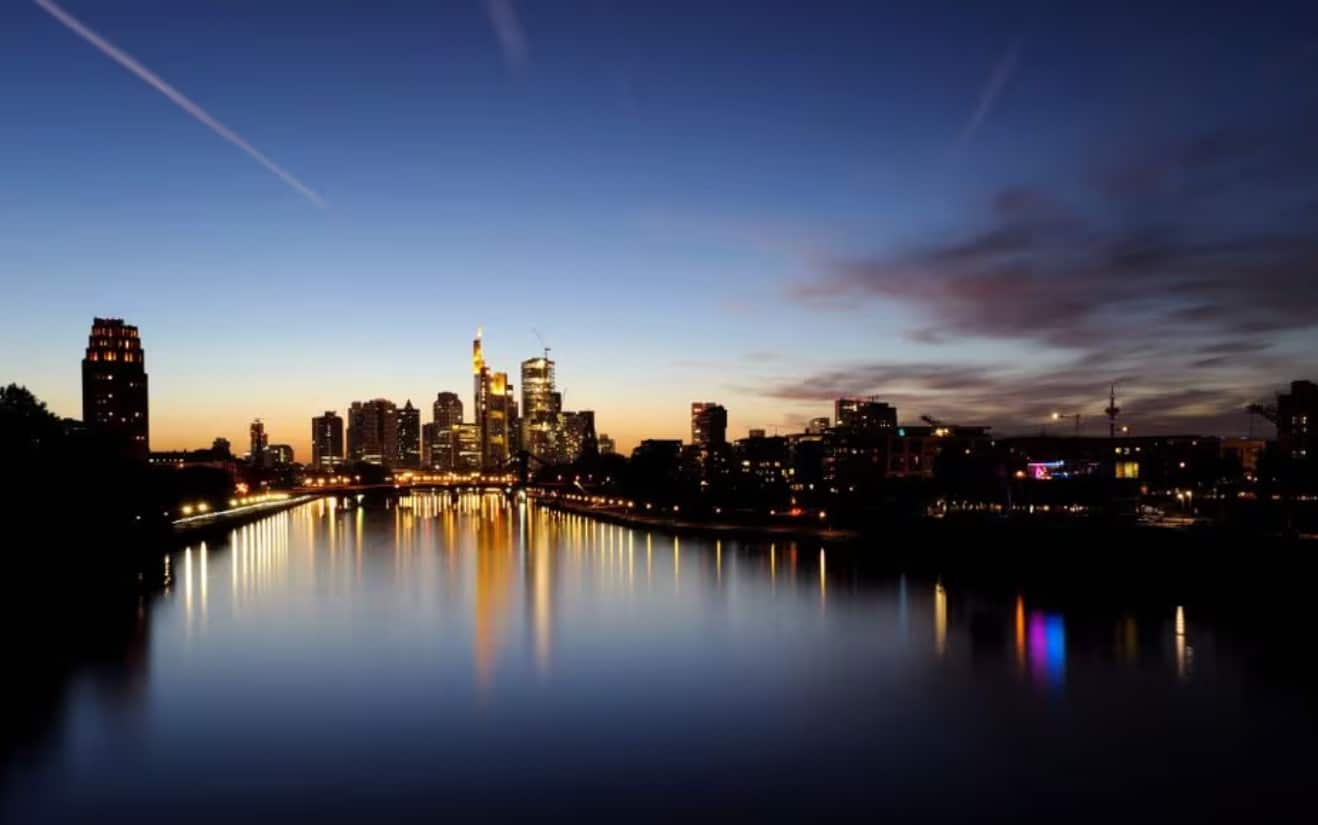By Ioannis Tirkides
We are in treacherous waters. After a year and a half of relentless interest rate hikes by central banks in the developed world, and the remarkable resilience of economies in the face of adversity and war, we are seeing some cracks.
Manufacturing indices have been falling for a long time, and the latest employment report in the United States showed that the volume of employment has stalled. In Germany, a survey by the Ifo Institute in Munich found that German companies have sharply reduced their investment plans and the investment climate has deteriorated sharply. Growth in the euro area stalled in the third quarter and Germany has been in decline for most of the year.
But it is not just one year of slow growth. Suddenly, Germany is no longer the beacon of stability that it was. Europe’s manufacturing powerhouse is losing its grip. The governing coalition itself, is not very harmonious, and its support in the polls has been falling steadily since the elections two years ago.
At the same time, the far-right Alternative for Germany (AfD), has made remarkable gains and is now polling above 20 per cent, making it the second largest party after the Christian Democratic Union. Germany’s economy is changing, and its politics are increasingly fractious. This has as much to do with an economic model that is increasingly outdated, as it does with the country’s political orientation, or lack of one. In this article we try to understand this turnaround in Germany, its fractious politics and what it all means for Europe.
The rise of the AfD
How far to the right the AfD is, remains an open question, but what is perhaps clearer is that the party is unlike any other in Europe’s populist tradition. Unlike the National Rally in France or the Brothers of Italy, the AfD is not driven by a strong leadership. The party is run by two co-leaders, and they change all the time. Its agenda is relatively broad and, in many ways, quite radical. For example, the AfD is sceptical about Germany’s membership of NATO, critical of the European Union and opposed to the euro currency. The AfD appeals to blue-collar workers and its support is much stronger in the east than in the west of the country. They are openly critical of Germany’s economic and foreign policies, which they see as disastrous for German interests. They argue for an end to the war in Ukraine and a rebuilding of relations with Russia. They see a treaty with Russia as essential to Germany’s security and prosperity, echoing Mackinder’s ‘heartland’ theory.
Germany’s economic weakness
The German economic model was characterised by export-led growth and a focus on manufacturing, particularly in high-value industries such as automobiles, machinery, and engineering. The country maintained an emphasis on saving and investment, with a reputation for financial discipline and stability. Germany’s success was reflected in steadily rising living standards and substantial current account surpluses over many years, averaging around 7 per cent of GDP annually. Germany’s success was aided by the introduction of the euro in 1999 and the trend towards increasing globalisation in the 1990s and 2000s. Countries such as China and other developing countries, which were growing rapidly in the age of globalisation, needed large quantities of the tools and machinery that Germany produced so
productively. The introduction of the euro allowed Germany to maintain its competitive advantage when its trading partners in the monetary union were unable to devalue to compensate for slower productivity.
However, as emerging economies such as China developed and advanced, their need for such manufactured goods diminished. Now that globalisation is reversing, and the world economy is fragmenting, countries are becoming more protective of their domestic industries and production. As a result, there is less demand for German manufactured goods than before, and China has for the first time turned the balance of trade with Germany in its favour.
At the same time, the green transition, the attempt to power Germany’s massive industry with renewable energy, is proving too difficult. As a result, German industry is no longer investing in the country as it once did. German companies are going abroad, mainly to the United States, where energy prices are much lower. After the destruction of the Nord Stream pipelines that supplied cheap Russian gas, Germany now relies on expensive LNG from the United States. The German government subsidises German industry to offset higher energy costs, but this cannot go on forever.
The war in Ukraine
The war in Ukraine is a loss for Germany because of the resulting higher energy costs, the loss of export markets and also for geopolitical reasons. According to the AfD, German and European political elites arguably have little understanding of geopolitics and the importance of geography. They remain overly focused on a value-based foreign policy at the expense of realism, even though historically good relations with Russia have always benefited Germany.
The war in Ukraine is disastrous for Ukraine itself and for Europe. Ukraine has lost a significant part of its territory to Russian occupation, too many of its young people have died and a large part of its population has been displaced to Europe. Whether this war was necessary or not remains controversial. Probably not, if the Minsk agreements were all that Russia wanted in the first place, as John Mearsheimer, professor of international relations at the University of Chicago, argues.
Inevitably, the effects of the war go beyond Ukraine. Europe is now cut off from Russia. Relations between Europe and China are not the same as they were before the war. The global economy is fragmented by sanctions, great power rivalries and the reorientation or reshoring of supply chains. Higher energy costs and domestic politics are forcing the de-industrialisation of Germany and Europe more broadly. The trend is not new, but it is accelerating.
Europe is facing a new geopolitical reality in which it must rebuild its own energy security and defence. Slower economic growth will mean more disunity in Europe, and the geopolitical shifts now taking place are not in Germany’s interests. Ultimately, public opinion and European politics will shift.
What happens to Europe?
If Germany continues to decline, there will of course be consequences for Europe. It is unlikely to cause the break-up of the European Union, but Europe can easily become ineffective, unable to function as an integrated entity. The next few years are going to be tough, and what’s particularly worrying is that there are no people in Europe with the right
ideas who are prepared to do something about the situation. Most of the political debate is between people who want to subsidise industry and people who want to subsidise the green transition. But there is never a reformer who wants to stop Europe’s decline and change its policies.
Conclusion
There is a relative decline in the West and Western dominance of the world. We see this in the fact that sanctions against Russia are not really sticking as much as hoped. The relative size of countries in the global system has changed. The Brics, for example, are now larger in purchasing power parity than the G7, the group of the world’s richest countries. America is still strong in terms of technological leadership, but this is increasingly being challenged.
The EU remains heavily dependent on the US for protection and needs an open global system for its economic success. Europe is in a difficult position between conflicting internal policies, an incomplete architecture in the European Union and new geopolitical realities. And it hasn’t really started to discuss what it needs to do to survive in this kind of new world, other than doing what worked in the past, like more expansion. But that was under different conditions, this time may be different.
Ioannis Tirkides is the Economics Research Manager at the Bank of Cyprus and President of the Cyprus Economic Society. Views expressed are personal. The article is also published on the Blog of the Cyprus Economic Society.







Click here to change your cookie preferences